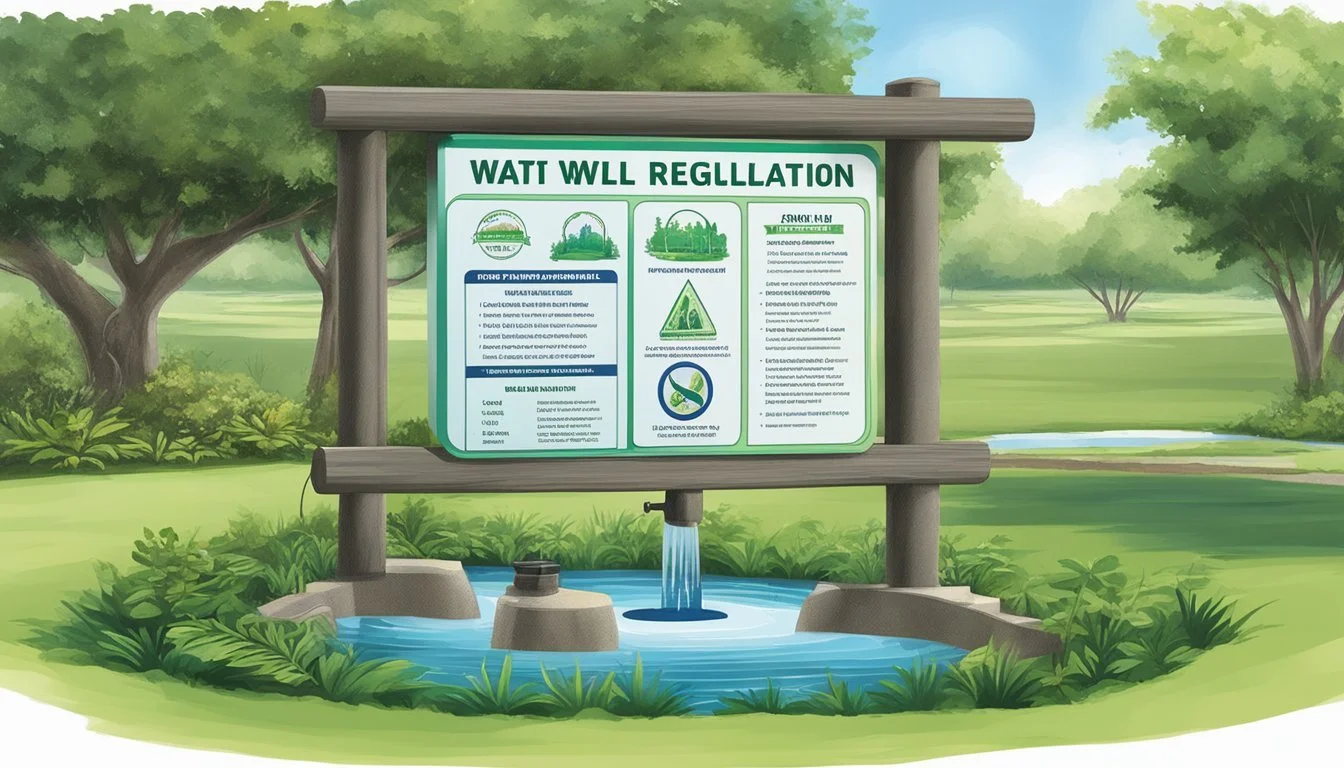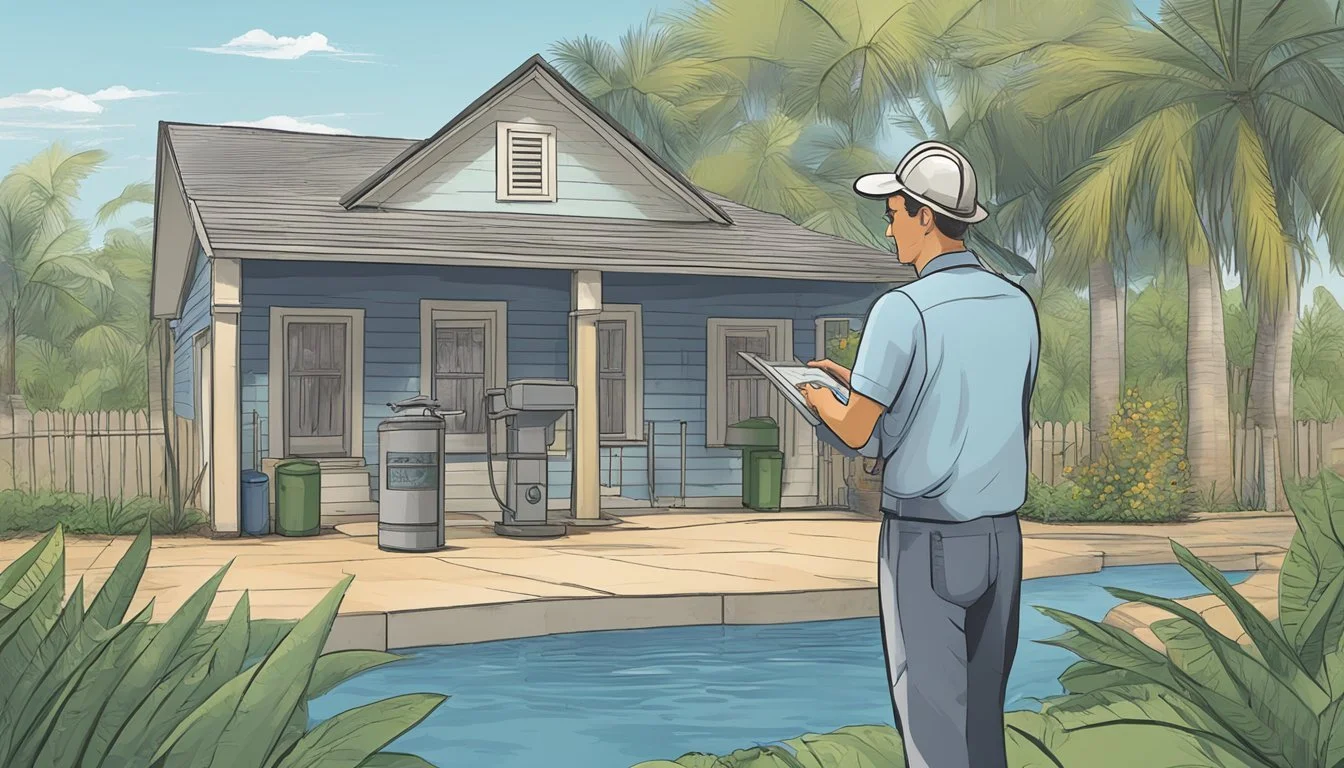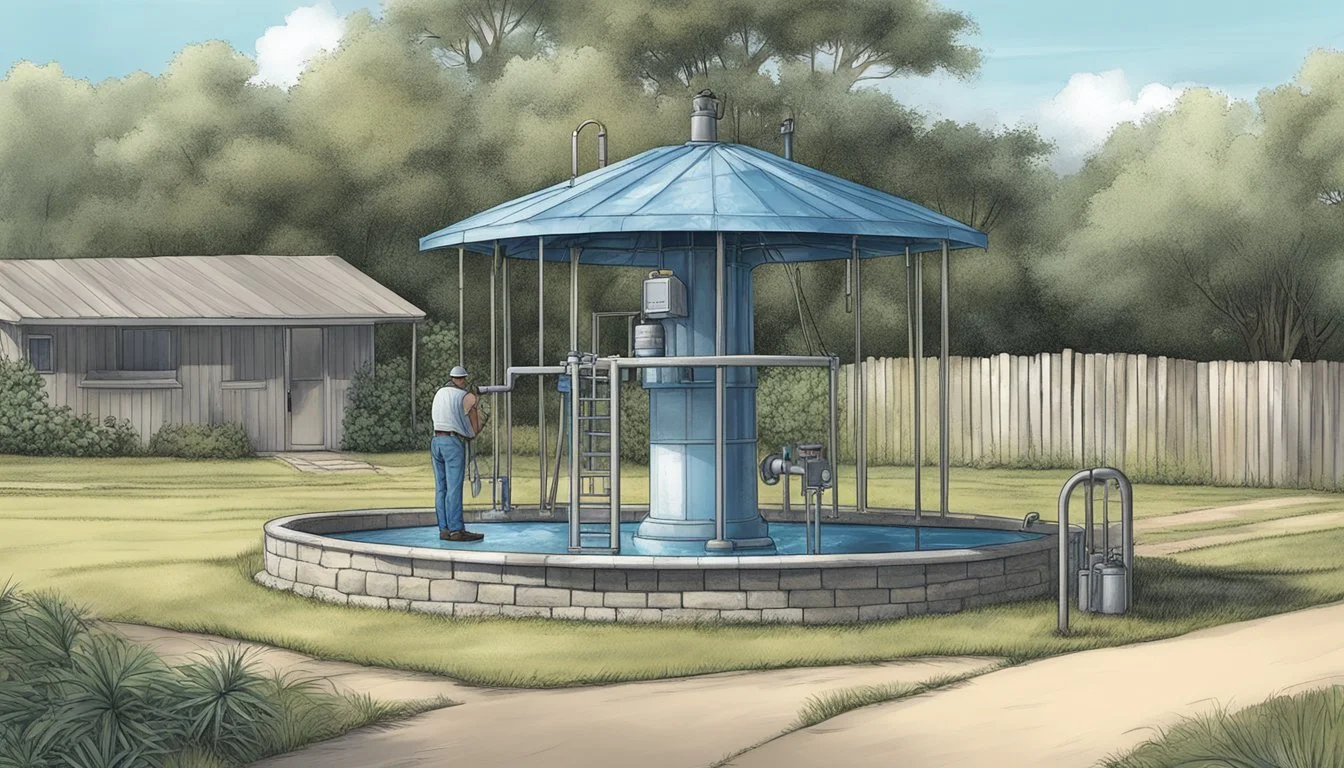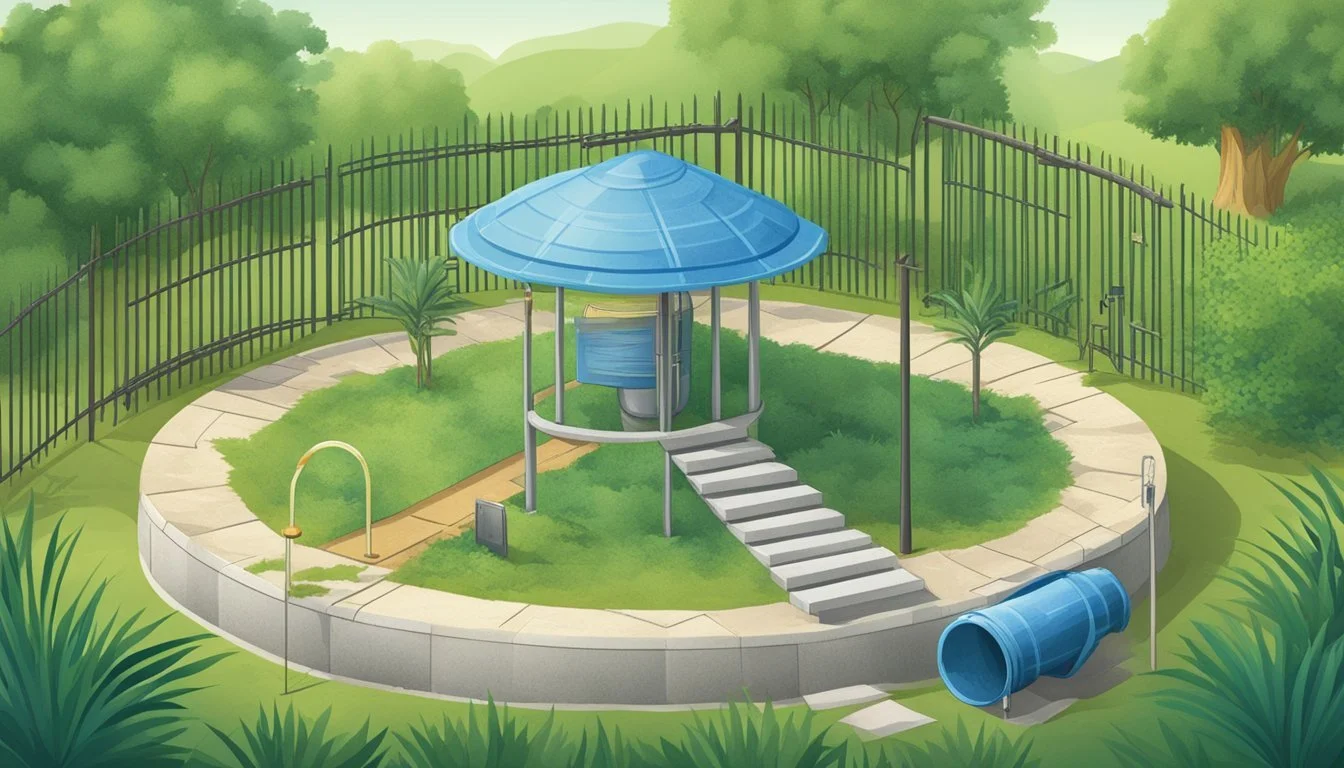Florida Water Well Regulations
Understanding Compliance for Property Owners
In Florida, the construction, maintenance, and operation of water wells are subject to specific state regulations to ensure the protection of the aquifer and public health. These regulations are enforced by the Florida Department of Environmental Protection (DEP) and the Department of Health. They establish a framework for the permitting, construction, repair, and abandonment of water wells across the state. Detailed rules, such as those found in Chapter 62-531 and Chapter 62-532 of the Florida Administrative Code (F.A.C.), set forth comprehensive guidelines that water well contractors must adhere to.
The Florida Water Well Permitting and Construction Requirements delineate the standards for different types of wells, addressing the technical aspects of well construction to prevent contamination of water sources. As part of the regulatory process, well contractors are required to file specific forms upon the completion of a well, which includes a detailed Water Well Completion Report. License requirements for contractors are in place to ensure that individuals performing work on wells are qualified and knowledgeable about the relevant laws and standards.
Additionally, the Florida Department of Health provides resources and oversight in areas concerning public health aspects of drinking water wells. They offer guidelines for well construction tailored to protect drinking water sources from pollutants and to safeguard public health. This oversight ensures that water derived from wells is suitable for consumption and that the well's construction does not negatively impact Florida's groundwater resources.
Legal Framework and Governing Bodies
The regulatory ecosystem for water well management in Florida is structured under specific legislation and executed by dedicated governmental units. It ensures the wells' construction, operation, and maintenance adhere to high standards, protecting the state's water resources.
Florida Department of Environmental Protection (FDEP)
The FDEP is the primary state agency responsible for overseeing environmental management and stewardship, including the regulation of water wells. This is carried out under the authority of Chapter 373, Part III, of the Florida Statutes and the Florida Administrative Code, especially emphasizing Chapter 62-532, which addresses the permitting of water well contractors.
Water Management Districts (WMDs)
Florida is divided into several geographic regions, each overseen by a specific Water Management District (WMD). These districts are tasked with supervising water resources within their jurisdiction, following both state laws and regional codes. They operate under Florida Statutes and the Florida Administrative Code, including Chapter 62-531, which outlines the requirements and standards for water well construction and testing, ensuring ecological balance and resource preservation.
County Health Departments
At the county level, Health Departments play a critical role in conjunction with the EPA to oversee public health aspects related to water wells, particularly focusing on drinking water safety. Some counties, like Monroe County, have additional local regulations that supplement state rules to reflect local environmental conditions. These departments interpret and enforce the provisions specified by the DEP, ensuring water wells meet all health and safety requirements.
Permitting Process and Requirements
When constructing or modifying a water well in Florida, individuals and contractors must follow a specific set of regulatory steps to obtain the necessary permits. Adherence to these steps ensures the protection of water resources and compliance with state laws.
Water Well Permitting
The Florida Department of Environmental Protection (FDEP) oversees water well permitting to regulate the location, construction, repair, and abandonment of water wells. All well construction activities must comply with the FDEP guidelines and may require a Water Well Construction Permit. This process involves:
An assessment of the proposed well's impact on water resources.
Verification that contractors are appropriately licensed.
Adherence to technical standards for well design and construction.
Well Construction Permit
A Well Construction Permit is essential for new wells, repairs or modifications, and abandonments. To obtain this permit, one must:
Verify the contractor has a valid Water Well Contractor License.
Ensure that the construction practices meet the Chapter 62-532, Florida Administrative Code (FAC) standards.
In addition, homeowners constructing a well with a diameter greater than two inches must also secure a permit, ensuring the contractor holds the necessary license, as per the FE603/FE603: 2021 Handbook of Florida Water Regulation.
Environmental Resource Permit (ERP)
For certain wells, an Environmental Resource Permit (ERP) may be required. This permit is broader and covers activities that may have an impact on water resources beyond the construction of the well itself, such as:
Handling surface water management.
Wetland impacts.
Applicants must provide detailed plans demonstrating their project will not harm water resources and will comply with water quality standards. Those seeking to utilize water wells for activities like irrigation may also require a Water Use Permit from the South Florida Water Management District (SFWMD) or their local Water Management District (WMD).
Well Construction and Standards
In Florida, the construction and standards of water wells are rigorously defined and regulated to ensure public safety and water quality. Specific rules and permitting processes guide the establishment of water wells while considering the impact on land and natural resources.
Water Well Construction Standards
Florida's water well construction standards are maintained to protect the integrity of water resources. They define the technical requirements for well design, material use, and construction practices. The standards ensure that water wells operate safely, without causing harm to the environment or public health. For instance, contractors must use certain casings and screens that meet industry codes to prevent contaminants from entering the water supply.
Land and Natural Resource Considerations
When constructing water wells, contractors and property owners must consider the implications on land and natural resources. This encompasses not only the immediate area surrounding the well but also neighboring properties and ecosystems. The design and location must comply with regulations meant to protect the land's integrity, which includes policies to prevent soil erosion and pollution.
Water Well Construction Requirements
The Florida Department of Environmental Protection (Florida DEP) outlines the permitting process and the specific Water Well Construction Requirements. These requirements are legally binding for anyone seeking to construct, repair, or abandon a water well. Prior to well construction, a permit application must be submitted and approved, which includes a comprehensive review ensuring all standards are met and natural resources are conserved. Additionally, well contractors in Florida are required to be licensed, demonstrating their qualifications to perform work that complies with state regulations.
Contractor Licensing and Education
In Florida, the regulation of water well construction is a critical aspect overseen by various authoritative entities to ensure the safety and integrity of water wells. Specifically, well contractor licensing and continuing education programs are fundamental to uphold industry standards.
Well Contractor Licensing
The Florida Department of Environmental Protection mandates that the construction, repair, and abandonment of water wells must only be conducted by licensed water well contractors. These contractors are required to adhere to stringent permitting regulations, which are enforced at the local level by Water Management Districts (WMDs). Potential contractors must undergo a rigorous process to obtain licensure that demonstrates their ability to comply with state statutes and well construction standards.
Continuing Education Program
To maintain their licensure, water well contractors in Florida must participate in a Continuing Education Program. This initiative is designed to keep contractors up-to-date with the latest industry practices and regulatory changes. The program covers various relevant topics and necessitates the completion of certain credit hours. The Florida Water Well Contractors Continuing Education Program is managed by FGWA and further details can be found here. It ensures that all licensed water well contractors remain knowledgeable about current and new well construction regulations.
Operational Guidelines and Reporting
In Florida, adherence to operational guidelines and timely reporting is essential for water well contractors to maintain compliance with state regulations. These processes are critical in ensuring the safe construction and reliable monitoring of water wells.
Completion Report Submission
Upon the completion of a water well, contractors are required to submit a Well Completion Report to the Florida Department of Environmental Protection (DEP). This report must encompass detailed information about the well's construction, location, and the materials used. The submission of this document is mandated under Chapter 62-532, F.A.C., and is necessary for the proper documentation of new or modified water wells. Timely submission within the allocated window is crucial, as it facilitates the state's efforts to manage groundwater resources effectively.
Monitoring and Reporting Requirements
For operational water wells, ongoing monitoring and reporting are fundamental components outlined by the Florida DEP. Contractors and operators must monitor water well conditions, water levels, and the quality of water yielded. They are obligated to report their findings in accordance with the Water Well Permitting and Construction Requirements. Regular reporting helps in identifying potential environmental impacts, ensuring public health and safety, and contributing to the sustainable management of Florida's water resources. The information gathered also assists state authorities in making informed decisions regarding future water well constructions and interventions.
Maintenance, Repair, and Abandonment
Maintaining water wells in Florida is critical to ensure they operate safely and efficiently. When wells fail to function properly, or when they are no longer needed, specific regulations guide their repair or abandonment to protect the state's water resources.
Well Maintenance and Repair
Routine Maintenance:
It is imperative to perform inspections and cleanings regularly to detect any signs of contamination or structural failures.
Licensed contractors must undertake all repairs as stipulated by the Florida Department of Environmental Protection (FDEP).
Common Repairs:
Replacement of worn components.
Disinfection post-contamination.
Sealing cracks in well casings.
Procedures for Well Abandonment
Steps for Abandonment:
Obtain a proper permit from the relevant water management district or local authority as required by FDEP regulations.
Have the well assessed and abandoned by a licensed contractor to ensure no harm comes to the aquifer.
Abandonment Process:
Removal of all pumping equipment and materials.
Disinfection and sealing of the well to prevent contaminants from entering the water supply.
It is essential for well owners to comply with these regulations for the repair and abandonment of wells to safeguard Florida’s groundwater from contamination and to maintain public health and environmental integrity.
Protection of Groundwater and Environment
Florida’s groundwater and environmental protection regulations are designed to safeguard its vital resources. These measures address potential contamination and management practices to maintain the health of the ecosystem.
Groundwater Contamination and Protection
Groundwater in Florida is susceptible to contamination from a variety of pollutants, including hazardous wastes. To mitigate this risk, the Florida Department of Environmental Protection enforces stringent rules on water well construction, as per Chapter 373, Part III, of the Florida Statutes. These regulations ensure that the construction and maintenance of water wells do not compromise water quality, focusing on preventing contaminants from entering the groundwater supply.
Environmental Management
Central to Florida’s environmental management is the oversight of water wells, as the state’s aquifers supply a substantial portion of its drinking water. The Florida Water Well Construction Program stipulates that statewide water well construction must comply with specific standards, such as those outlined in Chapter 62-532 of the Florida Administrative Code. These include protocols for the handling and disposal of hazardous waste materials, to diminish their potential impact on the environment. Moreover, the delegation of authority to the Florida water management districts places local knowledge at the forefront of enforcing these guidelines, ensuring that environmental management is both efficient and effective.
Special Considerations in Florida
The regulation of water wells in Florida encompasses several specialized factors including localized requirements, management by specific districts, and agricultural considerations which are pivotal for compliance and sustainability.
Delineated Areas and Special Districts
In Florida, certain delineated areas have specific regulations pertaining to water well construction to protect the unique hydrological features and water resources. Special districts within the state are granted the authority to implement these localized standards, ensuring the protection and proper management of the area’s water supply.
South Florida Water Management District Specifics
The South Florida Water Management District (SFWMD) plays a crucial role in regulating water resources in the region. It focuses on water quality, flood control, and natural resource protection. Farmers and farmland owners within the district’s jurisdiction must adhere to more rigorous permitting processes and reporting requirements to ensure the sustainability of water use.
Agriculture and Farmland Water Use
Agricultural activities demand significant water use, thereby necessitating farmland owners and farmers to follow stringent water well regulations. It’s essential for agricultural stakeholders to work within the specified allowances to maintain the balance between water resource sustainability and agricultural productivity. They must coordinate with local agencies, including the SFWMD, when constructing and operating irrigation wells on the farmland.
Compliance and Enforcement
In Florida, compliance with water well regulations is critical to maintain public health and environmental integrity. Enforcement mechanisms ensure that water well contractors adhere to state standards.
Well Classification and Regulation
Florida categorizes water wells into classes to streamline regulation and oversight. Each class is subject to specific construction, permitting, and monitoring requirements. For example, according to the Water Well Construction Rules, Forms, and Reference Documents, wells are designated by their use such as private, public, or monitoring. The Florida Department of Environmental Protection (DEP) oversees the application of these regulations.
Penalties and Enforcement Actions
When a water well contractor violates Florida's regulations, they may face a range of penalties. These can include fines, suspension, or revocation of their license to operate. Enforcement actions are designed to be proportional to the violation and may escalate for repeated non-compliance. The details of such disciplinary guidelines can be found within the framework outlined by the Water Well Contractor Continuing Education Program Manual. Cooperation between the DEP and local water management districts ensures that regulations are uniformly enforced across the state.
Frequently Asked Questions
This section addresses common inquiries regarding Florida's water well regulations and requirements.
What are the current water well setback requirements in Florida?
In Florida, water well setback requirements are established to protect water sources from contamination. The specific setback distances can vary depending on local ordinances and the type of well.
Do I need a permit to drill a well in Florida, and if so, how do I obtain one?
Yes, drilling a well in Florida requires a permit. Permits are obtained through the Florida Department of Environmental Protection or a relevant water management district, depending on well size and intended use.
Who is responsible for the regulation of water wells in Florida?
The Florida Department of Health and the Florida Department of Environmental Protection share responsibilities for regulating water wells, with DEP establishing construction standards and DOH overseeing certain aspects of the well's impact on public health.
What is the minimum depth required for a drinking water well in Florida?
The minimum depth for drinking water wells in Florida is not uniformly set at the state level; it depends on various factors including local geology and aquifer characteristics. For specific requirements, consulting with local regulations is essential.
Are there specific regulations for the construction of new water wells in Florida?
Yes, there are specific regulations for constructing new water wells in Florida which include licensing requirements for contractors, well design standards, and material specifications.
How can I find information regarding the historical changes to Florida water well regulations?
For historical changes to water well regulations in Florida, viewing the changes in the state's water well construction rules or consulting documents such as the 2021 Handbook of Florida Water Regulation is advised.









